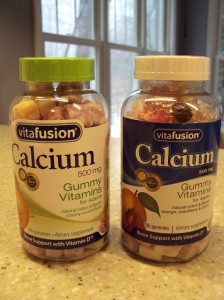Back in 1971 when I was in grad school, one of my classes dealt with the legal ramifications of advertising claims. For example, no label could contain the word “new” or “improved” unless actual product change was measurable.
Companies worked hard to alter their merchandise just enough to claim they were new or improved, since advertising studies showed buyers were positively influenced by those words. But does new or improved always mean better? What’s wrong with a successful product staying the same?
On a recent shopping trip, new and improved became the cause for frustration. I don’t drink much coffee, so when I buy it, I spring for the good kind. But while standing in my regular grocery store in the coffee aisle, I suddenly had trouble finding my usual favorite. Eventually I saw why: new and improved packaging. Starbucks had forced me to spend extra time finding what I wanted, in the name of progress. Very irritating.
The next day I was at Walgreens in search of my calcium gummies and couldn’t find them, either. When I asked for help, the clerk pointed and said, “They’re right in front of you.”
“No,” I said. “They’re not,” I’d just spent several minutes impatiently scanning the shelves for the familiar kiwi green lid.
She reached for one of the bottles, but I shook my head. “That’s not it.”
“Yes it is,” she said, “just with a new label.”
She was right. New and improved. Maybe.
Is my reluctance to appreciate change a function of getting old? Young people see change as adventure. The unknown is a happy chance for a new beginning.
But is there such a thing as too much change?
We widows have been asked to embrace extreme change, a new single life that usually isn’t improved. How are we supposed to cope with that? God’s answer, like the answers to all questions, is in the Bible. We see he hasn’t changed from eternity past until now, and he’ll always be exactly like he is, because a way to make him new or improved doesn’t exist. He’s already perfect, just the way he is. So does he want us to follow his example and shun change?
The answer is no.
His Word says he’s eager to see change in us. When we embrace his plan of salvation, our change becomes radical. He makes us into new and improved people, bringing us closer to being who he intended us to be in the first place. So, despite his reality of never needing to change, he’s all for change in us.
As for all that new packaging? I’m trying to change my attitude.
“If anyone is in Christ, the new creation has come: The old has gone, the new is here!” (2 Corinthians 5:17)






